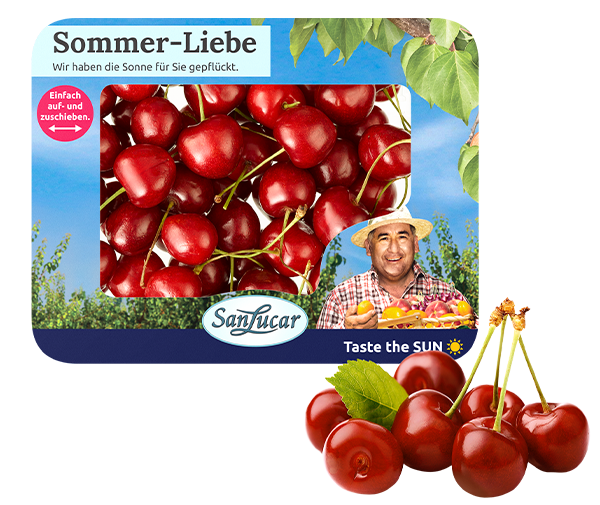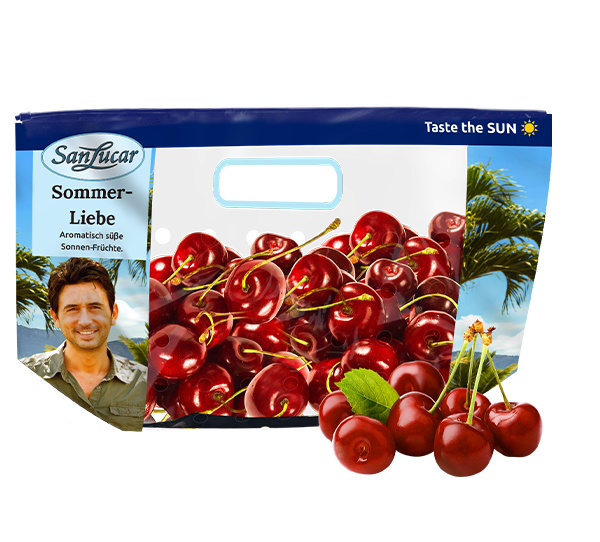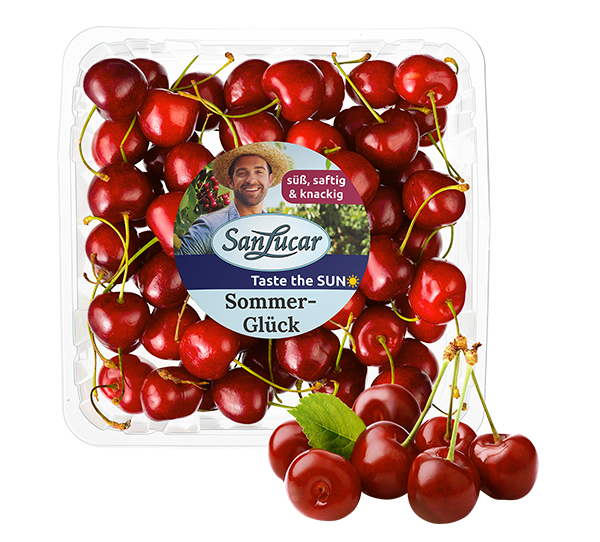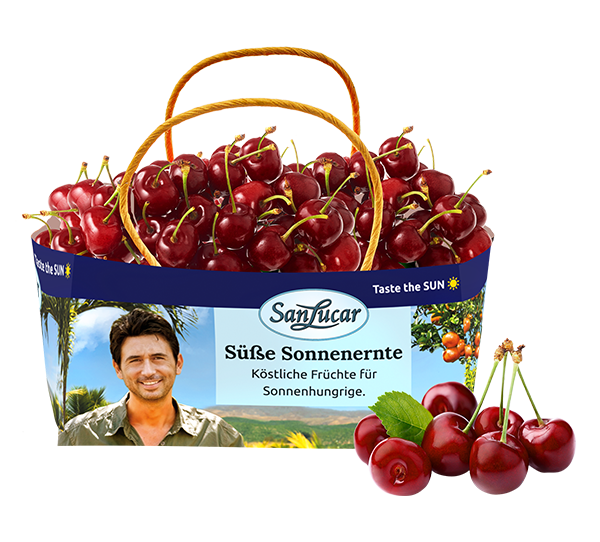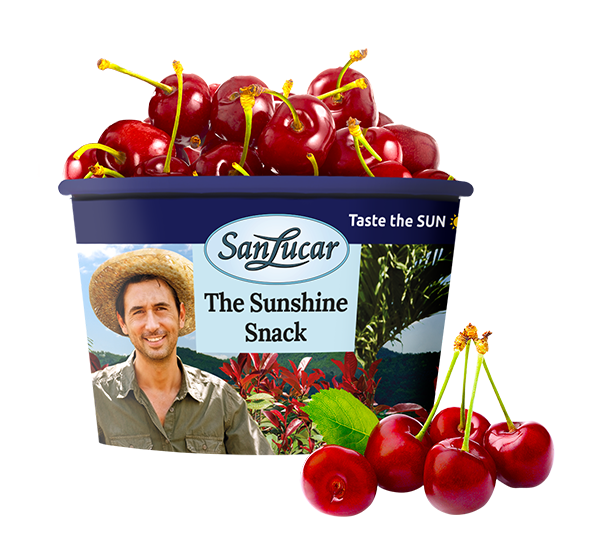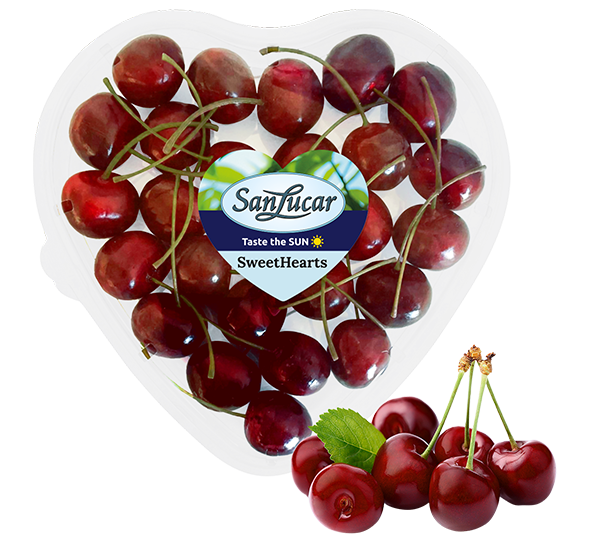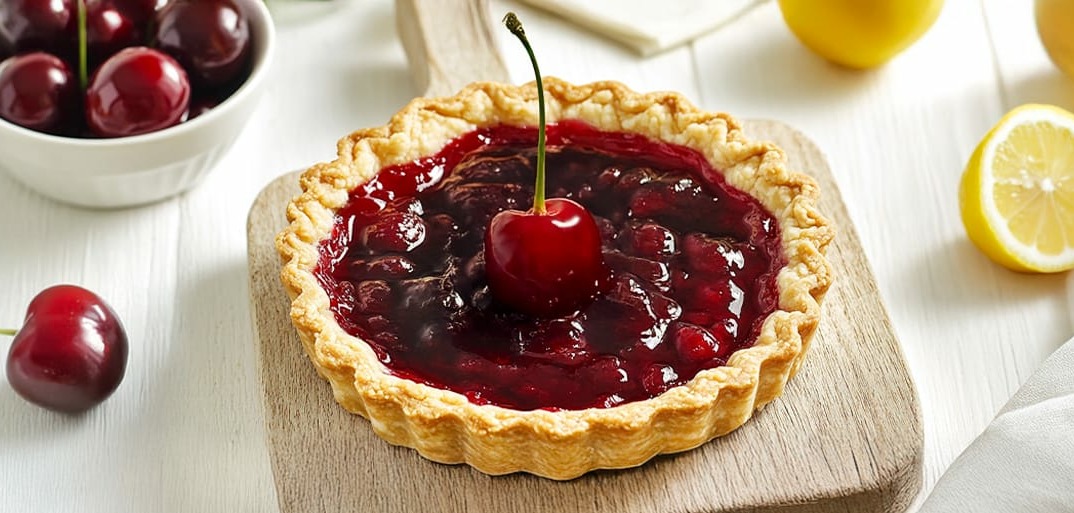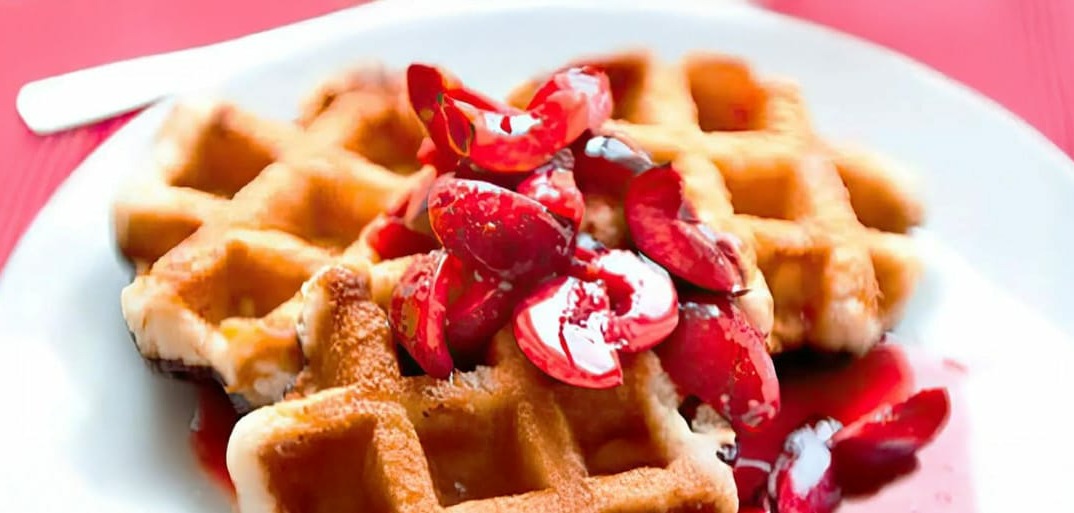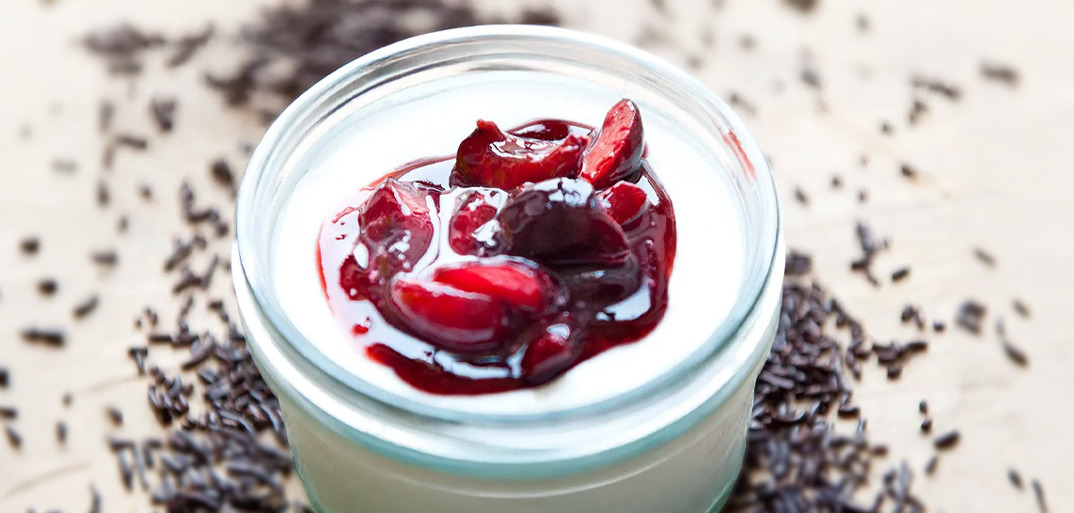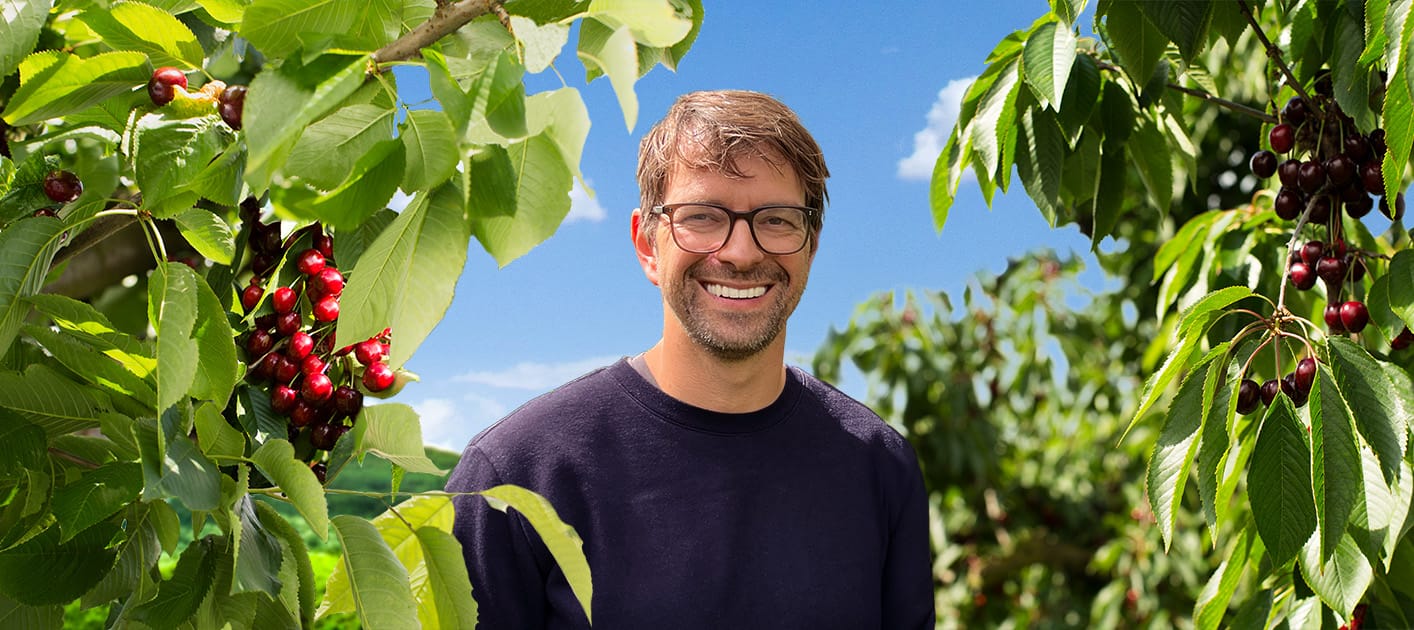
Sweet, red and crunchy.
“Our cherries grow to the horizon. And beyond”, laughs our picker Jon Kotulla.
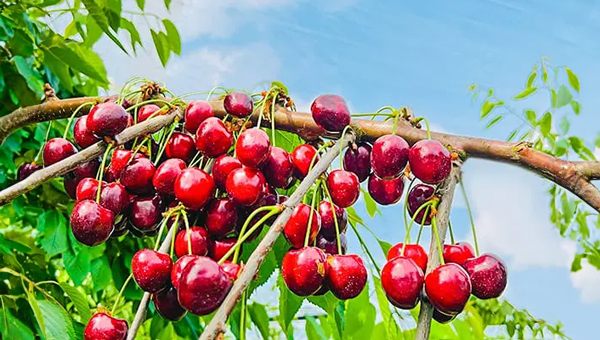
Whether Spain, Italy, Turkey, Germany, Chile or Argentina, our cherries only come from growing regions where they feel at home.
In rainy regions like Germany, we cover the trees so that the rain doesn’t damage the delicate skin of the fruit. They are harvested everywhere only when they are ripe and have a beautiful matte sheen.
This is done very carefully with the stem intact to keep them from drying out. And the stem must be green, as an unmistakable sign of freshness.
No matter where our cherries grow, they are shipped crispy and sweet as quickly as possible. And Jon Kotulla? He strolls across his sunny fields and looks forward to new rain – the cherry blossom rain.
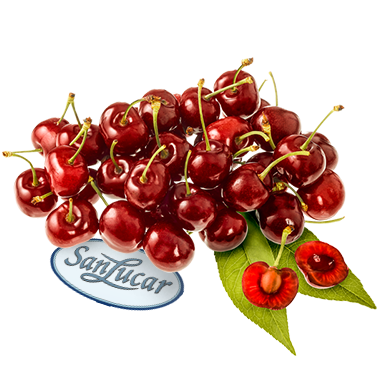
Good to know
To keep cherries nice and fresh, plump and crisp, they are best kept in the refrigerator.
More interesting factsabout cherries
Country of origin
For our cherries, we choose only the best growing areas in the world. For example: Spain, Italy, Turkey, Germany, Canada and Chile.
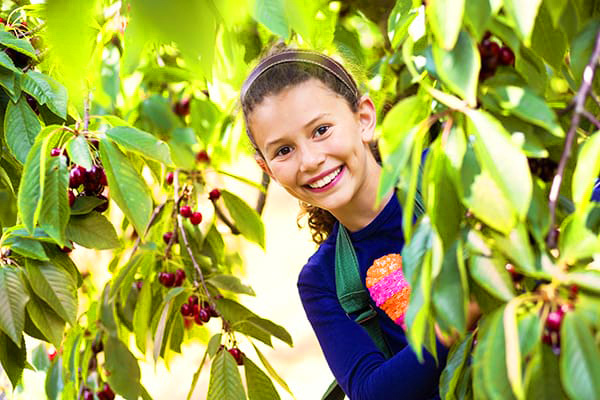
Storage
Cherries should be eaten crisp fresh because they simply taste best that way. However, they also keep for a few days if stored in a cool place.
History
Their origin is in Eurasia. Today’s cultivated varieties of sweet cherries have evolved from various species of bird cherry and wild forms of sour cherry.
Tips and special features
With cherries, pay special attention to the stem being green, because that’s how you can tell they’re fresh. They should also have a matte sheen.
Nutritional information
| Vitamin B (mg/100g) | 1 mg |
| Vitamin C (mg/100 g) | 15 mg |
| Vitamin E (mg/100 g) | 0.3 mg |
| Potassium (mg/100 g) | 235 mg |
| Calcium (mg/100 g) | 17 mg |
| Calorific values: Energy | 60 kcal |
| Fett thereof |
0.3 g |
| Monounsaturated fatty acids | |
| Polyunsaturated fatty acids | |
| Carbonhydrates | 13.3 g |
| of which sugar | 11.7 g |
| Protein | 0.9 g |
| Salt | 5 g |
| © German Food Code 3.02 |
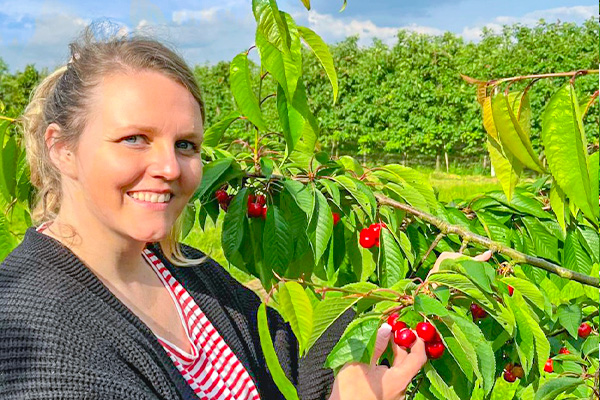
Taste in harmony with people and nature
We use our modern, digitally controlled water management system to save water, always rely on natural predators first when dealing with pests and protect the bees.
More about our social responsibility
